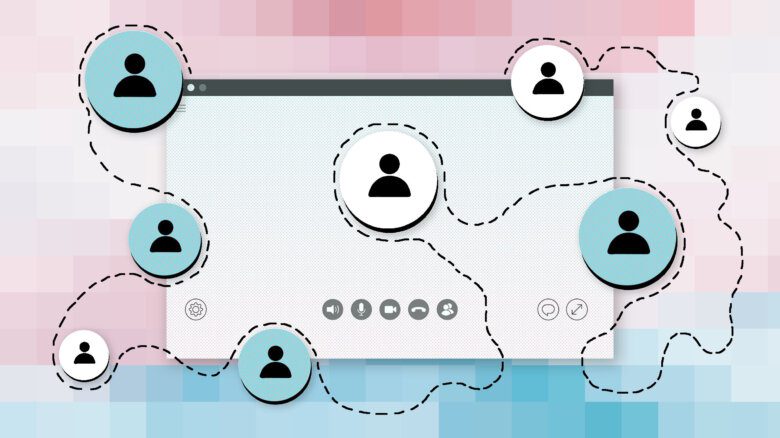“Ask Kai: Advice for the Apocalypse” is a column by Kai Cheng Thom to help you survive and thrive in a challenging world. Have a question? Email askkai@xtramagazine.com.
Dear Kai,
One of my co-workers uses they/them pronouns. I knew that from day one, noticing their pronouns in their email signature and next to their name on Zoom. I’ve always made sure to use those pronouns—it was never a question for me. But I’ve noticed that our supervisors don’t seem to care. My supervisors always use the wrong pronouns, don’t even stop to correct themselves or seem to notice what’s right there written on the screen in front of them.
I feel powerless because I don’t want to cause a situation that would make my co-worker uncomfortable or lead them into a confrontation they didn’t ask for, but using their correct pronouns in conversations and doing nothing else doesn’t always feel like enough. I’m too scared to bring it up in private—I don’t want to come across like I think I’m so much better than everyone else just for using the correct pronouns. I also don’t want to fixate on something that I’m sure hurts them enough already. I don’t know if there’s more I should do to show that I respect their identity even if others don’t.
Regards,
Concerned Co-worker
Dear CC,
Allow me to begin by acknowledging your compassion. The work of social change is rooted in compassion, which is our capacity to notice the suffering of others and to refuse to look away. When I imagine you, I think about the time you must have spent thinking about the situation you describe, and how important it must have felt for you to go to the trouble of writing me this letter.
There are a great many people in this world who never notice the injustices that happen right in front of them every day; there are a great many more who do notice, but choose the path of least resistance, hardening their hearts so that they can get on with their days unburdened by the weight of empathy. Yet for some reason, CC, something inside of you has chosen another way, and I urge you to honour that.
For those readers who may not be as familiar with trans people or trans culture, every trans or non-binary person is unique, and each one of us has our own personal response to being misgendered—for some, it’s no big deal, and for others, it’s deeply triggering. Since your co-worker has taken the step of putting their pronouns in their email signature and Zoom name, CC, I would guess that being gendered correctly is at least somewhat important to them. Your instincts are correct: something is not right here. So what’s your next step? Here is where you may need to move beyond compassionate feelings and lean into courageous action.
“In not bringing your concerns up, are you really showing care for your co-worker, or are you taking care of yourself?”
Social change requires courage to move forward: we must be willing to risk getting uncomfortable and having hard conversations. In this case, CC, my suggestion is that you start by doing the very thing you’re scared of and bring up the issue of pronouns with your co-worker. Yes, I know you said that you don’t want to come across as thinking you’re superior to everyone else, and that you don’t want to bring up something that hurts them enough already. I can sense the care underneath these concerns, CC, and I want to commend that. However, I want to also gently challenge you by asking: in not bringing it up, are you really showing care for your co-worker, or are you taking care of yourself?
It’s only natural to worry about how we come across to others. However, the work of being an ally means facing these fears and being willing to “get it wrong,” because no one can get it right one hundred percent of the time. Making mistakes and getting it wrong are the only ways we can learn how to improve as allies. In this same vein, if you don’t take the risk of bringing it up with your co-worker, then you will never actually learn what they might need from you. I encourage you to get messy, CC. Make mistakes. This is how relationships of solidarity are born.
Regarding your worry about causing hurt by bringing up a painful topic: in situations like these, CC, I honestly don’t believe that naming harm that has already occurred makes things worse. If we never name harm on the grounds that it is too painful, then we are never able to actually work toward change and things just continue the way they are. Social change requires us to be brave enough to name painful things.
Certainly it’s possible that your co-worker won’t want to talk about it with you (especially if they happen to be a private kind of person and they don’t know you very well), but that doesn’t mean that you shouldn’t broach the subject. I would simply suggest prefacing the conversation by saying something like “This might not be any of my business, and you can totally decline to have this conversation with me, but I was wondering if you want any support around being misgendered at work?”
In other words, this is about asking for consent to open the conversation and respecting their wishes in either direction. To be honest, however, I would imagine that your co-worker would feel, at worst, neutral about you bringing it up in a gentle and respectful way with the intention of helping—and at best, they might feel supported and relieved to be able to share the situation with someone else. To me, that’s worth the risk.
So I encourage you to open up the dialogue, CC. If they do want to talk to you about it, then I’d recommend asking early on what kind of support would feel best for them. This is generally best practice for anyone doing any kind of allyship, because it gives you a chance to get a sense of what they need, what they want, and what they are uncomfortable with. It’s possible that your co-worker just wants to deal with it on their own, and giving them a chance to tell you that means you can step away from the whole thing with a clear conscience. On the other hand, they may really want someone to talk to, or to vent hurt or frustrated feelings. They might also want you to help intervene directly by speaking up in meetings where you hear your supervisors misgender them.
This is where we come back to courage, CC. You have to ask yourself what you’re truly ready to do in this situation, and workplaces are always highly charged with power dynamics and potential risk. It takes a strong soul to correct a person in a position of power—but this is what it means to stand up to injustice. We have to be strong to create social change, and sometimes that is hard to do. But when we can do so, then we can help take the burden off of someone who is suffering harm, and I believe this is the very best of reasons to do something courageous.
On a very pragmatic level, from a workplace equity and diversity standpoint, it may be helpful for both you and co-worker to know that depending on the province, state or country you live in, having one’s gender identity at work may be considered a legal human right. Even if that’s not the case where you live, there is a growing awareness among employers of the need to pay greater attention to issues of diversity and equity. As a result, many employers these days are very receptive (at least superficially) to professional development, and this can be a good way to start the conversation. Rather than framing the issue as one or two supervisors being “bad,” it can be more strategic to raise the discussion as a systemic problem, which takes some of the heat off of the supervisors in question and allows them to save face while also doing something concrete to change the workplace for the better.
I believe in you, CC: in your compassion and your courage. I invite you to step into and embody those qualities fully. Embrace your fears and lean into the difficult conversations, even—or maybe especially—when you’re worried about getting things wrong. You will get things wrong, no matter what. Each mistake has something to teach us, if we’re willing to learn from it. This is how we build a better world.
Kai Cheng Thom is no longer a registered or practicing mental health professional. The opinions expressed in this column are not intended or implied to be a substitute for professional medical advice, diagnosis or treatment. All content in this column, including, but not limited to, all text, graphics, videos and images, is for general information purposes only. This column, its author, Xtra (including its parent and affiliated companies, as well as their directors, officers, employees, successors and assigns) and any guest authors are not responsible for the accuracy of the information contained in this column or the outcome of following any information provided directly or indirectly from it.


 Why you can trust Xtra
Why you can trust Xtra


